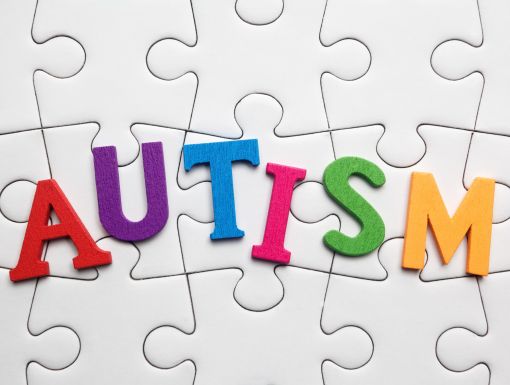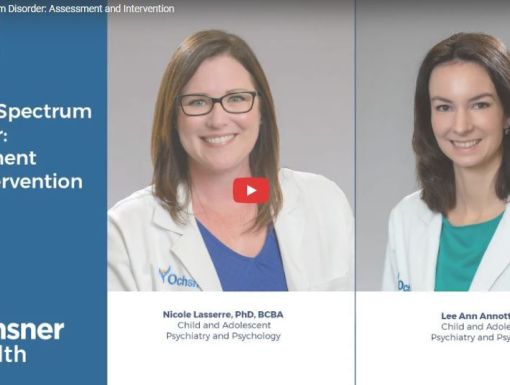
What is ABA Therapy and How Can it Help Children and Adults with Autism?
Applied behavior analysis is a common treatment for autism spectrum disorder. At its core, applied behavior analysis (ABA) is just a science about how behavior starts and the things that contribute to that behavior continuing to happen. ABA has been used to strengthen skills as needed and to work to lessen or eliminate harmful behaviors by focusing on how behaviors change and how learning takes place.
What is ABA therapy and how does it work?
ABA therapy can and should be person-centered. This is achieved in ABA therapy by tailoring therapy services to the person’s wants and needs. Although ABA therapy is mostly used for children, adults can benefit from ABA therapy, as well.
The ABA therapy process begins by gathering detailed information about the person’s strengths and areas that might benefit from some level of support and teaching. This information is gathered directly from the person through direct conversations (when possible) and by observing the things they say, do or express through their emotions. Parents and caregivers are also important sources of information during this process. During the goal-setting process, an ABA provider will work with families and the person receiving therapy to determine the areas in need of support with a focus on goals that are important for future learning and that are meaningful to them.
ABA therapy can address many different areas of concern that impact a person’s everyday life. Treatment goals during ABA usually address one or more of the following areas: activities of personal care or daily living, self-help skills, watching and learning from others, coping and tolerance skills, communication skills, play and leisure skills, reduction of challenging and harmful behavior, safety skills, social skills, and vocational skills. Individualized treatment is a defining feature of an ABA program. This means each therapy plan is customized for the person receiving it, progress is tracked often, and their therapy plan is evaluated and changed as needed. No two people have the same needs, which means no two people should have the same therapy program.
Why is ABA therapy recommended for autistic people?
ABA is considered an evidence-based, “best” practice treatment by the U.S. surgeon general and by the American Psychological Association for autistic people. “Evidence-based” means that ABA has passed scientific tests of its usefulness, quality, and effectiveness. In short, ABA works. The successful improvement of core deficits of autism (impaired communication, impaired social skills, and restrictive or repetitive behaviors or interests) has been documented in hundreds of peer-reviewed studies, making ABA the standard of care for autism. Studies indicate that, when practiced intensively (more than 20 hours per week), and early in life (beginning before age 4), an ABA program may produce large gains in development and reduce the need for special services. Keep in mind, it is impossible to predict how much benefit might be seen for any given person within any therapy program; however, some benefit has been seen for many people who have participated in ABA therapy.
What does an ABA program typically look like?
Therapy services differ from person to person in how often therapy is given and how long sessions last. However, all programs should be based on the individual needs of the person seeking help. ABA therapy is not restricted to a specific setting and can be delivered at home, in a center, at school or in the community. Decisions for where treatment is provided should depend on what form of care will be the best for the individual learner.
ABA programs can be classified in two major ways:
- Comprehensive ABA treatment is most often provided to young children and involves addressing multiple skill areas in a full day program, sometimes up to 20-40 hours per week. This is what most early intensive behavioral intervention programs are considered. This type of program is most often used with young children who have many different skill areas that need improvement.
- Focused ABA treatment addresses a smaller number of skill areas and therapy occurs a few times per week. This type of intervention can be appropriate at any age. However, it is more often used with older people and for those who require fewer supports or have a smaller number of skill areas in need of improvement.
Parent and caregiver consultation and training is also an important component of any ABA program and involves teaching the person’s primary caregivers how to utilize ABA methods in their natural environments. Parent/caregiver training may involve conversations about current or new needs, explanations of helpful ABA-strategies, demonstrations of effective learning strategies, coaching for caregivers as they apply the process themselves or regular meetings to check in on progress toward home goals and address challenges and overcome them.
Who provides ABA therapy?
A person’s ABA team will usually include a Board Certified Behavior Analyst and one or more line/behavior technicians. In Louisiana, behavior analysts must also be licensed by the Louisiana Behavior Analyst Board. More information about the roles each of these people play on an ABA team can be found on the Behavior Analyst Certification Board and/or the Louisiana Behavior Analyst Board websites. Licensed psychologists with specific training in applied behavior analysis are also able to provide ABA therapy. Often, ABA therapy from a licensed psychologist will be more focused and may be less intense (in terms of therapy hours and duration). In Louisiana, psychologists must be licensed by the Louisiana State Board of Examiners of Psychologists and may or may not also be a licensed behavior analyst. As with any therapeutic or educational service, the program is only as good as the provider. Individuals can make remarkable progress with strong clinical teams. Don’t be afraid to ask about credentials and experience.
Does the Michael R. Boh Center for Child Development offer ABA therapy?
The Michael R. Boh Center staff includes several professionals with training in applied behavior analysis and includes Board Certified Behavior Analysts and licensed psychologists with training in applied behavior analysis. We currently offer a variety of focused ABA programs. In our focused programs, our board-certified behavior analysts work with you and your child/family member for one or more appointments per week. During each appointment, our professional staff will work one-on-one with your child/family member while also teaching you how to carry on the treatment at home or in the community. Our focused programs can also be used as a jump start while waiting for more intensive services to become available. Please contact the Michael R. Boh Center for Child Development if interested in getting more information about the specific types of focused programs available.
Learn more about the Michael R. Boh Center for Child Development.



